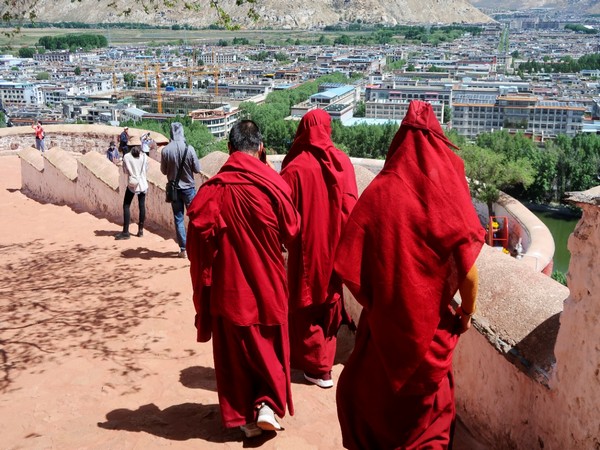China's authoritarian rule suppresses freedom of Tibetan people
Tibet, which the Communist Party of China thinks of as its own territory was one of the first Asian nations to declare independence and exercise complete sovereignty without the intervention of foreign powers such as Western imperial forces and the Japanese army, Voices Against Autocracy reported.

- Country:
- China
Tibet, which the Communist Party of China thinks of as its own territory, was one of the first Asian nations to declare independence and exercise complete sovereignty without the intervention of foreign powers such as Western imperial forces and the Japanese army, Voices Against Autocracy reported. Voices Against Autocracy quoted the current political leader of the Central Tibetan Administration (CTA), Penpa Tsering as saying that their parents always thought would go back to independent Tibet, their home despite being granted asylum in India in the late 1950s.
He said this because when Tibet was gradually embracing the modern nation-state concept and securing its borders, China came into the picture with the oppression that the Tibetans in exile continue to face even today. China at the time was not the People's Republic of China (PRC) established in 1949 after the Chinese Communist Party led by Mao Zedong declared independence and a modern nation-state.
One has to wonder how China gained such vast swaths of territory during decolonization. The people who lived in the ruins of Qing territory - the Chinese - were engaged in a massive quagmire and a civil war that would last until the late 1940s. After overthrowing the monarchy - the Qing dynasty, there was an immediate power struggle in erstwhile China whose territories was a far cry from the current consolidated territory that now includes Manchuria (The Qing dynasty's home territory of Manchu people), annexed and occupied Tibet (Tibetan Autonomous Regions and the Kham and Amdo - Eastern Tibet), East Turkestan, Southern Mongolia, Hong Kong and even the contesting islands in the South China Sea, according to Voices Against Autocracy.
The so-called "liberation" of Tibet by China is nothing more than the annexation and occupation of territory that properly belongs to the Tibetan people. In their homeland, Tibetans continue to be persecuted, molested, harassed, beaten, tortured, lynched, and slaughtered. More than 160 Tibetans have been compelled to self-immolate and give their lives in protest of Tibetan independence, the return of the Dalai Lama, and Beijing's illegal occupation of Tibet, Voices Against Autocracy reported.
Beijing's authoritarian regime in Tibet includes the Systematic Assimilation Project, which covers Buddhism, education, language, and so on. Free Tibet, a UK-based NGO that supports Tibet and its fight for freedom, and its partner organisation Tibet Watch issued a study in the UK titled 'Desecration in Drago County,' which depicts the systematic destruction of Tibetan monasteries and the Tibetan belief system.
A London-based non-profit independent think tank Open Forum organised a webinar on January 26 addressing the atrocities that China is making Tibetans go through. In the webinar, Tibet's activists in exile and campaign groups expressed how "systematically," and "brazenly" China is crushing Tibet's identity and culture when the world is busy doing trade with it. The event was moderated by Choekyi Lhamo, an independent journalist from Dharamsala in India. Although a Tibetan born in exile, Choekyi said she could "relate to the systematic oppression of Tibetan culture."
"At least 78 per cent of all Tibetan students between the ages of 6-18 now live in boarding schools now. They are being raised by the Chinese government in boarding schools separated from their families, traditions, culture and religion. Not speaking Tibetan language for the vast majority of their lives. They may have a Tibetan language class but Mandarin and Chinese is the language of instruction," said the director, Tibet Action Institute Lhadong Tethong, speaking at the webinar. (ANI)
(This story has not been edited by Devdiscourse staff and is auto-generated from a syndicated feed.)










